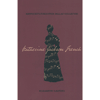
ELIZABETH DISAVINO - Katherine Jackson French: Kentucky’s Forgotten Ballad Collector
University Press of Kentucky ISBN: 9780813178523
LIZA DISAVINO
There Was A Fair Maid Dwelling
Private Label
Katherine Jackson French, the subject of this book, was a member of one of America’s First Families. From the book I discovered that she was a remarkable woman who embraced opportunities to educate herself at a time when most southern preparatory schools in the 1890s existed to mould girls into “the traditional southern lady ideal: domesticity, purity, submissiveness, piety, charm, dependence, grace and manners.” Katherine Jackson French clearly had other ideas. She was the second woman to earn a PhD from Columbia University – and the first from south of the Mason-Dixon Line to do so. She broke boundaries, gave leadership to a variety of organisations and was an important figure in the fight for women’s equality.
She was musical and had an interest in balladry. Like many of the collectors of that era, she was in a privileged position which allowed her to pursue her interests in the midst of what was clearly a busy life. She had the opportunity and took the time to collect the ballads which existed on her doorstep. Although this work was a relatively minor part of her life in terms of timescale, it was potentially one of the most important parts of her legacy. It is said that her research kickstarted a resurgence of Appalachian music, but her collection of traditional Kentucky ballads, which should have been her crowning glory, never saw print. Academic rivalries, gender prejudices and broken promises, compounded by a thirty-year feud known as the Ballad Wars, denied French her place in history and left the field to northerner Olive Dame Campbell and English folklorist Cecil Sharp.
I approached this book as someone interested in ballads but far, very far, from being an expert or scholar. I was hooked by the fact that there was something called the Ballad Wars. That grabbed my attention, and the book became an interesting and enjoyable read. I’ve steered away from any academic criticism of this book, mainly because I’m not qualified. Ballad scholars will read it because it is an important piece of work which can’t be ignored. My review is intended to signpost its publication for a more general readership. The mysteries in the story – why were Katherine Jackson French’s plans for publication thwarted – opens up the book to a wider readership. I’m guessing that I’m not alone in being intrigued by the fact that there was something called the Ballad Wars going on among academics for an extended period of time.
The book, or project, falls into at least three distinct if interlinked parts. The first part is a biography of Katherine Jackson French. This takes up the first section of the book. The second is the ballad collection itself, published for the first time in this book, and the third is an accompanying double CD.
Publishing this collection over a century on from when it should have been published is a significant achievement for Elizabeth DiSavino and a tribute to the regard she has for French. This book deserves to be a starting point rather than a concluding one and until the songs are translated from the pages of the collection into the repertoires of current singers, then it remains a largely academic exercise. If French’s research kickstarted a resurgence of interest in Appalachian music, then it would be a wonderful tribute to DiSavino’s work if by finally publishing the collection, it again kickstarted a revival of interest.
For me, the CD part is the one which has a lot of potential for further development but is currently a weak link in the project. Elizabeth DiSavino performs some of the songs on the accompanying double CD, but good as they are, some of the tracks seem stylistically out of place. A possible additional approach could take inspiration from that taken by Peter Hall when he decided to take songs from the pages of the Greig Duncan Collection, Folk Songs From The North East Of Scotland, and present them at the Edinburgh International Festival. To translate them from page to voice, Peter Hall sought out a group of singers who were skilled and immersed in traditional songs and asked each of them to learn around six songs for a series of performances at the festival some months later. It wasn’t an attempt to recreate the songs in a form which people imagined they might have been sung, rather it re-introduced the songs into a current generation of traditional singers. There was no attempt to modernise them to make them relevant, instead Peter Hall had trust in the singers to let the songs shine.
Elizabeth DiSavino doesn’t give the reader firm conclusions as to why the Katherine Jackson French collection wasn’t published as promised, and leaves the reader room to draw some of their own conclusions. Was it simply that Katherine Jackson French was a woman? Was it simply a consequence of professional power struggles among academics and collectors who became more focussed on their own celebrity than the songs they were collecting? Or was there some other explanation?
www.elizabethdisavinoauthor.com
www.kentuckypress.com
Pete Heywood
This review appeared in Issue 137 of The Living Tradition magazine
